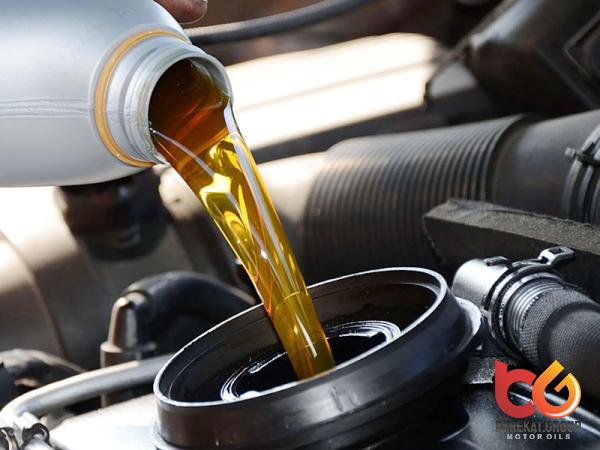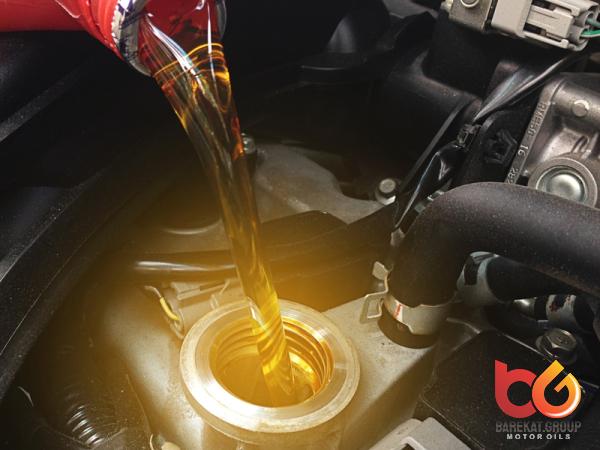An Overview of Engine Oil for Cars: Types, Functions and Selection Introduction: Engine oil plays a vital role in the smooth functioning and longevity of a car’s engine. Acting as a lubricant, coolant, and protecting the engine from wear, high temperatures, and contaminants, engine oil is an essential component of any vehicle. However, with numerous types and varieties available, selecting the right engine oil for your car can be a challenging task. In this article, we will explore the different types of engine oil, their functions, and factors to consider when choosing the most appropriate oil for your car. 1. Conventional (Mineral) Oil: Conventional engine oil, also known as mineral oil, is derived directly from crude oil. It is the most basic form of engine oil and is commonly used in older car models or those with lower engine demands. This type of oil is inexpensive but requires more frequent oil changes compared to synthetic oils. 2. Synthetic Oil: Synthetic engine oil is formulated from chemical compounds and provides superior performance compared to conventional oil. It offers enhanced lubrication, oxidation stability, and better resistance to extreme temperatures. Synthetic oils also flow more easily at low temperatures, allowing for quicker engine startup. They are recommended for high-performance engines, turbocharged engines, and newer vehicles that require higher levels of protection and efficiency. 3. Synthetic Blend Oil: Synthetic blend, also known as semi-synthetic oil, is a blend of both conventional and synthetic oil. This type of oil combines the benefits of synthetic oil, such as improved performance and protection, with the affordability of conventional oil. Synthetic blends are suitable for vehicles that operate under moderate to heavy loads or frequent stop-and-go driving conditions. 4. High Mileage Oil: High mileage oil is specially formulated for vehicles with higher odometer readings, typically over 75,000 miles.
Engine oil
 This type of oil contains additives that help reduce oil consumption, minimize leaks, and prevent engine wear and tear. High mileage oils typically have higher viscosity and are designed to combat the effects of aging engine seals and gaskets. 5. Racing Oil: Racing oil is specifically engineered for high-performance racing engines, providing maximum protection under extreme conditions. It contains premium additives to cope with high RPMs, high temperatures, and heavy loads. Racing oil offers increased film strength, reduced friction, and improved cooling properties. However, due to its specialized formulation and higher cost, it is not recommended for typical street driving. 6. Diesel Engine Oil: Diesel engine oil is specifically designed to meet the demands of diesel-powered vehicles. Diesel engines generate higher compression and hotter combustion temperatures, necessitating oils with better thermal stability and soot control. Diesel engine oils are available in conventional, synthetic, and synthetic blend variants, catering to different vehicle requirements. Choosing the Right Engine Oil: When selecting the most appropriate engine oil for your car, several factors need to be considered: 1. Vehicle Manufacturer’s Recommendations: Always consult your car’s owner manual or contact the manufacturer to determine the recommended oil viscosity and type for your specific vehicle make and model. 2. Viscosity: Engine oil viscosity refers to its thickness or resistance to flow at different temperatures. Viscosity is typically classified using a numerical grading system, such as 5W-30 or 10W-40. The first number (5W or 10W) represents the oil’s viscosity at low temperatures, while the second number (30 or 40) represents the viscosity at high temperatures. Selecting the correct viscosity ensures optimal engine performance and protection. 3. Climate Conditions: Consider the typical weather conditions in your region. Cold climate areas may require oils with lower viscosity (such as 5W or 0W), allowing for easier engine startup and quicker flow during cold temperatures. Warmer climates may necessitate higher viscosity oils (such as 20W or 30W) to maintain lubrication under extreme heat.
This type of oil contains additives that help reduce oil consumption, minimize leaks, and prevent engine wear and tear. High mileage oils typically have higher viscosity and are designed to combat the effects of aging engine seals and gaskets. 5. Racing Oil: Racing oil is specifically engineered for high-performance racing engines, providing maximum protection under extreme conditions. It contains premium additives to cope with high RPMs, high temperatures, and heavy loads. Racing oil offers increased film strength, reduced friction, and improved cooling properties. However, due to its specialized formulation and higher cost, it is not recommended for typical street driving. 6. Diesel Engine Oil: Diesel engine oil is specifically designed to meet the demands of diesel-powered vehicles. Diesel engines generate higher compression and hotter combustion temperatures, necessitating oils with better thermal stability and soot control. Diesel engine oils are available in conventional, synthetic, and synthetic blend variants, catering to different vehicle requirements. Choosing the Right Engine Oil: When selecting the most appropriate engine oil for your car, several factors need to be considered: 1. Vehicle Manufacturer’s Recommendations: Always consult your car’s owner manual or contact the manufacturer to determine the recommended oil viscosity and type for your specific vehicle make and model. 2. Viscosity: Engine oil viscosity refers to its thickness or resistance to flow at different temperatures. Viscosity is typically classified using a numerical grading system, such as 5W-30 or 10W-40. The first number (5W or 10W) represents the oil’s viscosity at low temperatures, while the second number (30 or 40) represents the viscosity at high temperatures. Selecting the correct viscosity ensures optimal engine performance and protection. 3. Climate Conditions: Consider the typical weather conditions in your region. Cold climate areas may require oils with lower viscosity (such as 5W or 0W), allowing for easier engine startup and quicker flow during cold temperatures. Warmer climates may necessitate higher viscosity oils (such as 20W or 30W) to maintain lubrication under extreme heat.
Specifications of Engine oil
 4. Driving Conditions: If your vehicle is subject to heavy loads, frequent stop-and-go driving, or towing, choosing a higher quality oil with better protection and performance properties is recommended. 5. Oil Change Intervals: Synthetic oils typically have extended oil change intervals compared to conventional oils. Consider your intended maintenance schedule and choose an oil that aligns with your preferences. Conclusion: Selecting the proper engine oil is crucial for maintaining the optimal performance and longevity of your car’s engine. Understanding the different types of engine oil available, their functions, and considering factors such as viscosity, climate, and driving conditions will help you make an informed decision. Always consult your vehicle manufacturer’s recommendations and seek professional advice when necessary. Regularly scheduled oil changes with the recommended oil type will ensure your car’s engine remains functional and protected for years to come.Types of Engine Oil for Cars: Functions, Selection, and Considerations I. Introduction – Briefly introduce the importance of engine oil for cars and its role in maintaining engine performance and longevity. II. Conventional (Mineral) Oil – Discuss the characteristics and composition of conventional engine oil, derived from crude oil. – Highlight its affordability while mentioning the need for more frequent oil changes compared to synthetic oils. III. Synthetic Oil – Explain the superior performance and benefits of synthetic engine oil over conventional oil. – Discuss enhanced lubrication, oxidation stability, resistance to extreme temperatures, and improved flow at low temperatures.
4. Driving Conditions: If your vehicle is subject to heavy loads, frequent stop-and-go driving, or towing, choosing a higher quality oil with better protection and performance properties is recommended. 5. Oil Change Intervals: Synthetic oils typically have extended oil change intervals compared to conventional oils. Consider your intended maintenance schedule and choose an oil that aligns with your preferences. Conclusion: Selecting the proper engine oil is crucial for maintaining the optimal performance and longevity of your car’s engine. Understanding the different types of engine oil available, their functions, and considering factors such as viscosity, climate, and driving conditions will help you make an informed decision. Always consult your vehicle manufacturer’s recommendations and seek professional advice when necessary. Regularly scheduled oil changes with the recommended oil type will ensure your car’s engine remains functional and protected for years to come.Types of Engine Oil for Cars: Functions, Selection, and Considerations I. Introduction – Briefly introduce the importance of engine oil for cars and its role in maintaining engine performance and longevity. II. Conventional (Mineral) Oil – Discuss the characteristics and composition of conventional engine oil, derived from crude oil. – Highlight its affordability while mentioning the need for more frequent oil changes compared to synthetic oils. III. Synthetic Oil – Explain the superior performance and benefits of synthetic engine oil over conventional oil. – Discuss enhanced lubrication, oxidation stability, resistance to extreme temperatures, and improved flow at low temperatures.
Buy Engine oil
 – Emphasize its recommendation for high-performance engines, turbocharged engines, and newer vehicles. IV. Synthetic Blend Oil – Explore the advantages of synthetic blend oil, which combines the benefits of synthetic and conventional oils. – Discuss its suitability for vehicles operating under moderate to heavy loads or frequent stop-and-go driving conditions. V. High Mileage Oil – Explain the purpose of high mileage oil, designed specifically for cars with over 75,000 miles on the odometer. – Highlight the additives that reduce oil consumption, minimize leaks, and prevent engine wear and tear. – Mention its higher viscosity and ability to combat the effects of aging engine seals and gaskets. VI. Racing Oil – Discuss the specialized formulation and benefits of racing oil for high-performance racing engines. – Highlight its high film strength, reduced friction, and improved cooling properties. – Emphasize that racing oil is not recommended for typical street driving due to its specialized nature and higher cost. VII. Diesel Engine Oil – Explain the unique requirements of diesel engines and the need for specific engine oils.
– Emphasize its recommendation for high-performance engines, turbocharged engines, and newer vehicles. IV. Synthetic Blend Oil – Explore the advantages of synthetic blend oil, which combines the benefits of synthetic and conventional oils. – Discuss its suitability for vehicles operating under moderate to heavy loads or frequent stop-and-go driving conditions. V. High Mileage Oil – Explain the purpose of high mileage oil, designed specifically for cars with over 75,000 miles on the odometer. – Highlight the additives that reduce oil consumption, minimize leaks, and prevent engine wear and tear. – Mention its higher viscosity and ability to combat the effects of aging engine seals and gaskets. VI. Racing Oil – Discuss the specialized formulation and benefits of racing oil for high-performance racing engines. – Highlight its high film strength, reduced friction, and improved cooling properties. – Emphasize that racing oil is not recommended for typical street driving due to its specialized nature and higher cost. VII. Diesel Engine Oil – Explain the unique requirements of diesel engines and the need for specific engine oils.
Engine oil + buy and sell
 – Discuss the thermal stability and soot control properties of diesel engine oils. – Highlight that diesel engine oils are available in conventional, synthetic, and synthetic blend variants to cater to different vehicle requirements. VIII. Choosing the Right Engine Oil – Discuss important factors to consider when selecting the appropriate engine oil for a car. – Emphasize the importance of consulting the vehicle manufacturer’s recommendations for oil viscosity and type. – Highlight the significance of climate conditions and the role they play in selecting the appropriate viscosity for optimal performance. – Discuss the impact of driving conditions and the need for higher quality oils for heavy loads or frequent stop-and-go driving. IX. Oil Change Intervals – Discuss the variation in oil change intervals between synthetic and conventional oils. – Highlight the extended oil change intervals of synthetic oils. – Emphasize the importance of aligning oil change schedules with the chosen oil type and the vehicle’s needs. X. Conclusion – Recap the importance of selecting the right engine oil for car maintenance and performance. – Encourage following the vehicle manufacturer’s recommendations and seeking professional advice when necessary. – Highlight the significance of regular oil changes with the recommended oil type to ensure optimal engine protection and longevity.
– Discuss the thermal stability and soot control properties of diesel engine oils. – Highlight that diesel engine oils are available in conventional, synthetic, and synthetic blend variants to cater to different vehicle requirements. VIII. Choosing the Right Engine Oil – Discuss important factors to consider when selecting the appropriate engine oil for a car. – Emphasize the importance of consulting the vehicle manufacturer’s recommendations for oil viscosity and type. – Highlight the significance of climate conditions and the role they play in selecting the appropriate viscosity for optimal performance. – Discuss the impact of driving conditions and the need for higher quality oils for heavy loads or frequent stop-and-go driving. IX. Oil Change Intervals – Discuss the variation in oil change intervals between synthetic and conventional oils. – Highlight the extended oil change intervals of synthetic oils. – Emphasize the importance of aligning oil change schedules with the chosen oil type and the vehicle’s needs. X. Conclusion – Recap the importance of selecting the right engine oil for car maintenance and performance. – Encourage following the vehicle manufacturer’s recommendations and seeking professional advice when necessary. – Highlight the significance of regular oil changes with the recommended oil type to ensure optimal engine protection and longevity.
Your comment submitted.